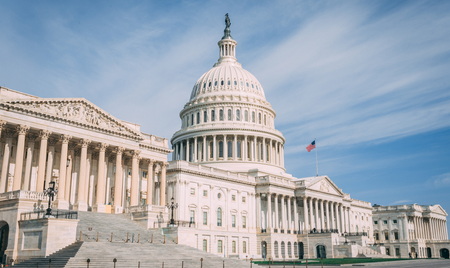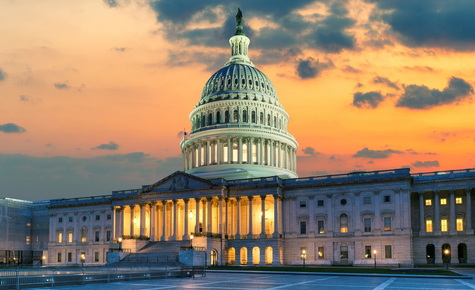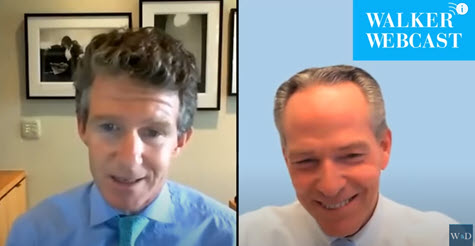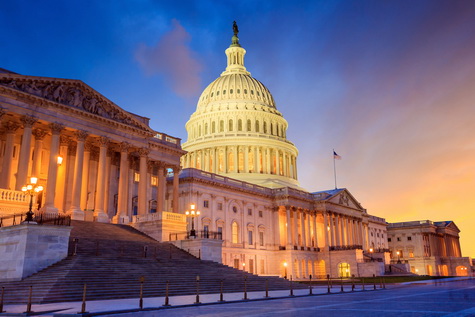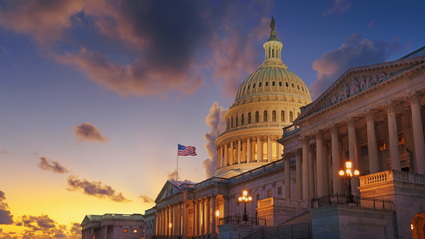
The House of Representatives will briefly return to Washington the week of Aug. 23 to vote on measures affecting the future of President Biden’s sweeping infrastructure agenda. (New York Times, Aug. 17)
Two-Track Approach
- A group of nine moderate Democrats led by Rep. Josh Gottheimer (D-NJ) informed House leadership on Aug. 12 that they will not support a $3.5 trillion budget resolution encompassing “human” infrastructure initiatives unless the bipartisan “physical” infrastructure bill passed by the Senate last week is approved by the House and enacted. (Bloomberg, Aug. 17 and Roundtable Weekly, Aug. 13)
- The moderates’ letter to House Speaker Nancy Pelosi (D-CA) stated, “Some have suggested that we hold off on considering the Senate infrastructure bill for months – until the (budget) reconciliation process is completed. We disagree. We will not consider voting for a budget resolution until the bipartisan Infrastructure Investment and Jobs Act passes the House and is signed into law.” (Politico, Aug. 13)
- Progressive House Democrats countered with the opposite approach, stating that they will not support the bipartisan infrastructure plan unless it is tied to the massive budget reconciliation measure, which addresses child care, health care and climate change. (Axios, Aug. 18)
- Pelosi this week reiterated her two-track plan to advance both measures in the House despite having just a three-vote margin majority. Republicans are expected to oppose the sprawling “human” infrastructure budget resolution. (BGov, Aug. 18)
CRE Impact

The human infrastructure proposal that may be advanced in the House under budget reconciliation rules would be partially financed by raising taxes on businesses and wealthy individuals – and potentially include a variety of tax increases affecting commercial real estate.
- The Real Estate Roundtable held an all-member Infrastructure Town Hall on Aug. 12 to discuss the Senate-passed infrastructure bill, what lay ahead in the House and the potential impact on commercial real estate. Rep. Tom Suozzi (D-NY), a member of the tax-writing House Ways and Means Committee, joined Roundtable Chair John Fish (Chairman and CEO, Suffolk), Roundtable President and CEO Jeffrey DeBoer, and other Roundtable staff for the Town Hall discussion. (Roundtable Weekly, Aug. 13 and The Roundtable’s Bipartisan Infrastructure Deal Fact Sheet and Tax and Fiscal Reconciliation Fact Sheet)
- DeBoer, above, stated, “This [reconciliation] package may be financed with a variety of tax increases affecting step-up in basis, like-kind exchanges, carried interest and capital gains that would act as a cumulative drag on investment at the exact time when sectors of the economy need incentives to recover from the pandemic. The Roundtable urges Senate and House policymakers to be very cautious as they proceed on the reconciliation bill – so that one-step forward with the physical infrastructure bill is not met with two-steps backward from tax increases.” (Roundtable statement, Aug. 11)
- The Roundtable’s summaries of budget reconciliation tax issues that could directly impact commercial real estate include:
What’s Next

- Pelosi and House Majority Leader Steny Hoyer (D-MD) laid out a schedule for votes next Monday and Tuesday.
- The House is scheduled to vote Aug. 23 on a rule that governs floor debate on the $3.5 trillion budget resolution (S Con Res 14), the $550 bipartisan infrastructure bill (HR 3684) and a voting rights bill (HR 4). The chamber is then expected to vote Tuesday on the “human” infrastructure framework and the popular voting rights bill. (CQ, Aug. 16)
- Approval of the budget resolution would allow the development of legislation to move forward that could pass later this year under “reconciliation” rules without any Republican support. The Senate voted last week to advance the same measure. (Roundtable Weekly, Aug. 13)
- White House spokesman Andrew Bates this week told Bloomberg, “All three are critical elements of the President’s agenda, and we hope that every Democratic member supports this effort to advance these important legislative actions.” (Bloomberg, Aug. 17)
Pelosi sent a note to her caucus this week, warning that any delay next week “jeopardizes the once-in-a-generation opportunity” to enact Biden’s broader legislative priorities. (Politico, Aug. 17)
# # #



